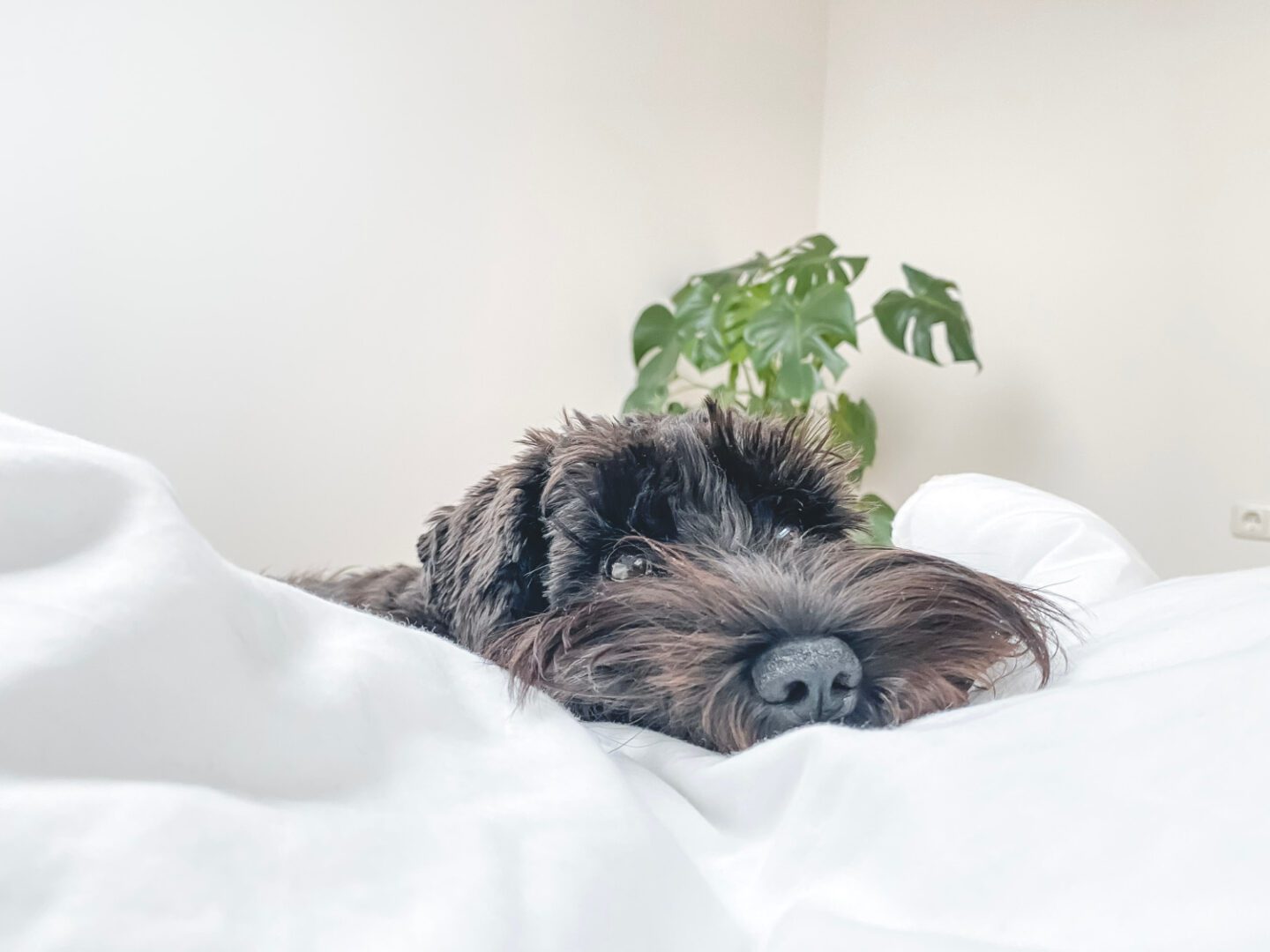If you are someone who suffers from allergies, then you will know how awful they can make you feel and how much they can affect your life and you most likely struggle with the spring and summer months if you get hayfever. At the moment, me and my family are really suffering with itchy throats, runny noses, sneezing and generally feeling a bit rubbish.

Loads of us are affected by these allergens in our own homes, which can include dust, pollen, mould spores, pet dander and even bacteria, and breathing these in often leads to allergic reactions and breathing problems such as asthma.
My husband really suffers with hayfever every year in spring and I also seem to get it worse and worse every year. Obviously, with us having pets, a lot of stuff gets brought into the house so it’s important that we do what we can to help remove these allergens.
I absolutely love summer but hayfever and other allergies are really hard to deal with when you can’t get away from it, even in your own home. It’s so easy to bring pollen and other allergens into your home on your clothes or with your pets going in and out, but there are some things you can do to minimise them and reduce your reactions to them.
Everyone wants their home to be a comfortable and enjoyable place to be, where you can relax and rest but if you are suffering from allergies that affect you in your house then it won’t be a nice place for you to be.
Even though it isn’t particularly pleasant to think about, your home can be full of dust mites as well as mould and dampness that often arises in areas that aren’t well-ventilated.
Allergens can be particularly harmful to those with asthma or any other type of respiratory disorder so it’s important to look after your home and do certain things to minimise the number of allergens in your home.
Here are some simple and effective things that you can do to minimise exposure to the substances that can cause allergies in your home.
Of course, regular hoovering is really important to reduce allergens, as it reduces the amount of dust in the air which can make allergies and breathing problems worse, and actually, the dust in our homes contains lots of chemicals too, so it’s important to get rid of as much as possible and regularly move your furniture around to hoover all the dirt trapped under there.
A vacuum that has a HEPA filter is vital if you suffer from allergies. A HEPA filter traps allergens and helps to purify and improve the air in your home by trapping the particles and filtering them so that they will then be properly removed from your house and emptied safely outside.
It’s also really important to wash or change the filter in your hoover regularly so that the dust particles are completely removed from your home, rather than lingering or coming back out.
Another thing to do is to hoover your beds regularly as lots of dirt can get trapped there, particularly if you have pets.
Decluttering throughout your house is so important so that you do not have piles of ‘stuff’ everywhere that can easily collect dust. Things that are out on surfaces like knick-knacks, piles of books, or a mountain of clothes that need sorting out collect dust quickly, so spend some time going through it all and have a good clear out and send things to charity, or find covered storage to keep things in.
Also, it is best not to have fresh flowers at all in your house during the times you suffer from hayfever.
If you suffer from allergies then keeping your home as clutter-free and minimalistic as possible is the best thing to do.
Carpets are a huge source of allergens in the home and dust mites can burrow deep into the fibre of carpets. If you have allergies then hardwood flooring is a much better option and will reduce the number of allergens in your home.
You can get different types throughout your house but hard floors such as this Dark Engineered Wood Flooring look so beautiful in living areas and bedrooms and it is so much easier than carpeted floors to maintain and clean properly.
Of course, it’s important that you still clean your wooden floors regularly to remove the dust and dirt and mop or steam your floors often. Using hot water with a bit of vinegar cleans really effectively without bringing more chemicals into your home.
If you do choose to add rugs to your wood flooring then choose low-pile ones as they are much easier to wash and will trap less dirt than a deep-pile rug and remember to clean them regularly too.

It’s super important to wash your bedding often and at a high temperature to destroy all of the dust mites and dirt that lingers there. Other fabrics such as curtains or throws also collect a lot of dust so you should wash those as often as possible, too.
If possible it is much better for you to have leather sofas as they are much easier to clean than fabric ones and don’t hold as much dust. But if you do have fabric-covered furniture then you should regularly hoover them all.
Ideally, you would stay at home and inside on higher pollen count days, but obviously, that isn’t always possible, so you should try to minimise the effects.
Pollen will linger on your clothing and hair after you’ve been out, so the best thing to do is to get straight in the shower and put all of your clothing in the washer. Otherwise, you’re just spreading it around as well as suffering the effects of it being on your skin and clothes.
You could also consider getting a Steam Shower to help relieve your symptoms further. Steam showers such as an Insignia Steam Shower can help with allergies as the steam clears nasal passages of pollen and dust, and calms down the inflamed membranes that line the inside of the nose so that symptoms are reduced.
There are lots of other health benefits of a steam shower as well as just being very enjoyable, but for an allergy sufferer, in particular, they can really be beneficial to have at home.
This can be a really hard one to do especially in warmer weather, and fresh air is important too, but if you can then ideally you should keep all windows closed as much as possible to keep that pollen out.
If you really need to open them then try to just do it during the day as the pollen count is usually higher in the evenings.
This is another one that is annoying to do but can really make a difference. It can be hard to not make the most of some lovely weather and get your washing out on the line, but if you do then the clothes will be covered in pollen which you will then bring into your home as well as put against your body and make your hayfever so much worse!
If you really do need to hang the washing outside then check pollen counts and just do it on days when it is lower.
Most cleaning products that we have in our homes contain harmful chemicals which we then breathe in and can cause more allergic reactions and respiratory problems. Swapping to non-toxic options or making your own with natural ingredients such as apple cider vinegar, baking soda and lemons helps to minimise that risk.
An Ecoegg is a great chemical-free way of washing your laundry and it is endorsed by Allergy UK too.
An air purifier can really make a big difference to the air quality in our homes, especially for those who suffer from allergies. They can help to remove pollen, dust mites, pet dander and other sources of allergens from the air in our homes. If you are someone who massively suffers with allergies every year then it is definitely something to think about investing in.
Allergies are awful to deal with and it often feels like there is no escape from them particularly in the spring and summer months. But doing as many of these things as possible can really help to remove dust and lower your hayfever and allergy symptoms in your own home so that you don’t suffer quite as much!
Do you have any tips to minimise allergies in your own home? Please share them in the comments if you do!